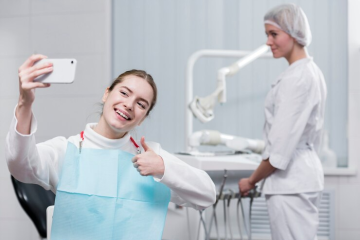Testosterone Replacement Therapy (TRT) has gained significant attention in recent years as a means to address the symptoms of low testosterone levels and improve overall health and vitality in men. TRT clinics have emerged as specialized centers offering comprehensive evaluation, personalized treatment plans, and ongoing support for individuals seeking to optimize their testosterone levels. In this article, we delve into the world of TRT clinics, exploring the benefits, considerations, and potential outcomes for those looking to unlock their full potential through hormone optimization.
Understanding Testosterone Replacement Therapy
Testosterone is a vital hormone responsible for regulating various physiological functions, including muscle mass, bone density, libido, mood, and energy levels. However, testosterone levels naturally decline with age, leading to a range of symptoms such as fatigue, reduced muscle mass, decreased libido, mood changes, and cognitive decline. In some cases, individuals may experience low testosterone levels earlier in life due to underlying medical conditions or lifestyle factors.
TRT involves the administration of exogenous testosterone to restore hormone levels to within a normal range, thereby alleviating symptoms and improving overall well-being. While TRT has been traditionally associated with treating hypogonadism, its applications have expanded to include addressing age-related decline and enhancing the quality of life in otherwise healthy individuals.
The Role of TRT Clinics
TRT clinics play a crucial role in guiding individuals through the process of hormone optimization, offering a comprehensive approach that encompasses evaluation, diagnosis, treatment, and ongoing monitoring. Unlike traditional healthcare settings, TRT clinics specialize in hormone therapy and employ healthcare professionals with expertise in endocrinology, urology, and integrative medicine.
Benefits for Patients
1. Personalized Treatment Plans: TRT clinics tailor treatment plans to the unique needs and goals of each patient, considering factors such as age, medical history, symptoms, lifestyle, and preferences.
2. Comprehensive Evaluation: Patients undergo thorough evaluations, including medical history review, physical examinations, laboratory testing (e.g., hormone levels, lipid profile, and prostate-specific antigen), and symptom assessments to identify underlying causes and develop targeted interventions.
3. Ongoing Monitoring and Support: TRT clinics provide regular follow-up appointments to monitor progress, adjust treatment as needed, address concerns, and provide education and guidance on lifestyle modifications, nutrition, exercise, and stress management.
4. Holistic Approach: In addition to hormone therapy, TRT clinics emphasize holistic approaches to health and wellness, recognizing the interconnectedness of physical, mental, and emotional well-being. Patients may receive support in areas such as nutrition counseling, fitness programming, mental health services, and mindfulness practices.
Considerations and Controversies
While TRT offers numerous potential benefits, it is not without controversy and considerations:
1. Risks and Side Effects: Like any medical treatment, TRT carries potential risks and side effects, including acne, fluid retention, hair loss, sleep apnea, mood swings, and cardiovascular complications. Proper monitoring and management by qualified healthcare providers are essential to minimize these risks.
2. Individual Variation: Responses to TRT can vary widely among individuals, and not everyone may experience the same degree of improvement in symptoms or quality of life. Factors such as genetics, lifestyle, underlying health conditions, and adherence to treatment protocols can influence outcomes.
3. Ethical and Regulatory Concerns: The widespread availability of TRT has raised ethical and regulatory concerns, particularly regarding off-label use, prescription practices, marketing tactics, and potential misuse or abuse. TRT clinics must adhere to evidence-based guidelines and ethical standards to ensure patient safety and integrity.
Choosing a TRT Clinic
When selecting a TRT clinic, individuals should consider the following factors to ensure quality care and optimal outcomes:
1. Credentials and Expertise: Look for clinics staffed by qualified healthcare professionals, including physicians, nurse practitioners, and physician assistants, with specialized training and experience in hormone therapy.
2. Comprehensive Services: Choose clinics that offer a range of services beyond hormone therapy, such as diagnostic testing, nutritional counseling, fitness programming, mental health support, and ongoing monitoring and follow-up.
3. Patient-Centered Approach: Seek clinics that prioritize patient-centered care, taking the time to listen to concerns, answer questions, and involve patients in treatment decisions.
4. Reputation and Reviews: Research clinic reputations through online reviews, testimonials, and referrals from trusted sources to gauge patient satisfaction and outcomes.
Conclusion
TRT clinics offer a specialized and comprehensive approach to hormone optimization, helping individuals unlock their full potential for enhanced health and vitality. By addressing the underlying causes of low testosterone levels and tailoring personalized treatment plans, TRT clinics empower patients to reclaim their quality of life, improve physical performance, enhance mental well-being, and rejuvenate their overall vitality. However, it is essential for individuals considering TRT to weigh the potential benefits against the risks, seek guidance from qualified healthcare professionals, and make informed decisions that align with their health goals and values.
In the quest for enhanced health and vitality, TRT clinics serve as valuable allies, guiding individuals on a transformative journey toward optimal hormone balance and holistic well-being.




